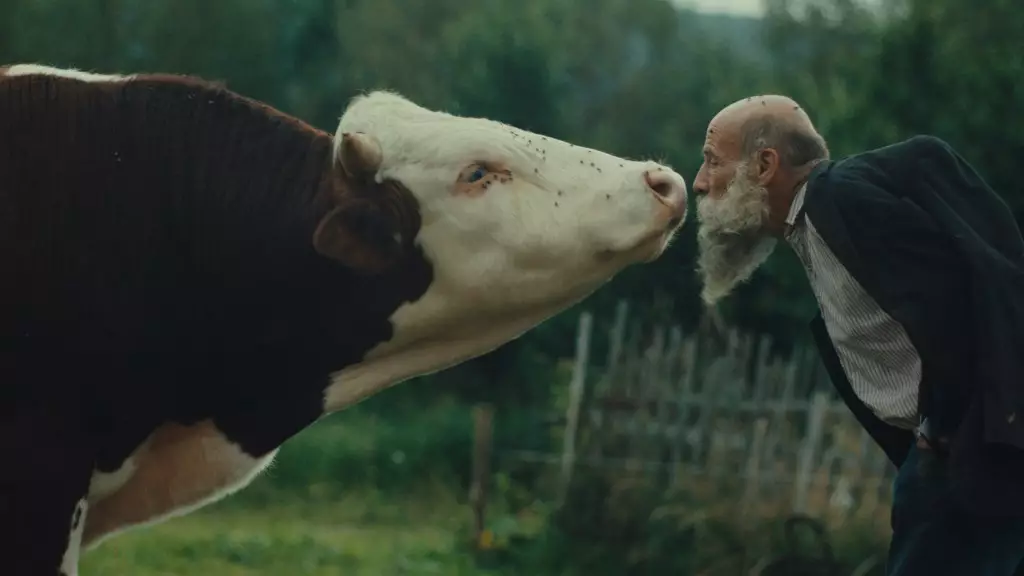In a landscape saturated with ostensibly “raw,” “honest,” and “authentic” documentaries, one must scrutinize whether these works genuinely uncover truth or merely craft illusions of authenticity. The recent award-winning documentary that echoes the spirit of the Maysles brothers’ classic “Grey Gardens” exemplifies how contemporary filmmakers often walk a tightrope of deception—presenting life stories that entertain or move the audience while subtly omitting uncomfortable truths. Such films tempt viewers with their seemingly candid glimpses into marginalized lives, yet often hide the manipulative hand of storytelling, editing choices, and the underlying socioeconomic narratives that shape these images.
This film, much like its predecessors, blurs the line between reality and spectacle. Although it appears to center on two aging brothers living secluded in the Bohemian Forest, its true depth is suspect. Are these men truly free in their rustic utopia, or are they prisoners of narrative expectations crafted by the filmmaker? The glamour of their eccentricities—a bull narrating, their bizarre living arrangements, and their unfiltered honesty—creates a façade that diminishes the complexity of their circumstances. What remains unspoken is the extent to which the camera and the filmmaker influence their storytelling, shaping the narrative into something more palatable, humorous, or provocative than the reality might warrant.
By focusing on this personal story, the film inadvertently perpetuates a myth that “authentic” rural life is inherently pure and meditative, ignoring the systemic issues and cultural shifts that have caused such lives to become marginalized. It subtly romanticizes their voluntary retreat from society, glossing over the socioeconomic disenfranchisement that often accompanies such isolation. The question arises: are these men truly living authentically, or are they a spectacle shaped by a voyeuristic gaze that benefits from their eccentricity?
The Spectacle of the “Authentic” Poor and the Danger of Nostalgia
There’s a troubling tendency in documentary filmmaking to fetishize poverty, rural customs, and eccentric personalities under the guise of preserving authenticity. These stories are often marketed as heartfelt or profound, yet in reality, they risk reducing complex lives to caricatures that fit certain narrative tropes. The bearded brothers, with their rugged charm and philosophical musings, serve as perfect symbols of rural resilience—yet what remains beneath that veneer is a potential for exploitation.
This framing plays into the broader cultural tendency to romanticize the “simple life,” often ignoring the systemic inequalities that have rendered such existence a necessity rather than a choice. It raises an ethical dilemma: does presenting these figures in such a picturesque light serve their interests or simply commodify their eccentricities for the entertainment of urban viewers? By only revealing superficial layers, the film neglects a deeper interrogation of why these men ended up in this secluded existence and how broader societal forces contribute to their marginalization.
Moreover, the film’s lack of critical context—such as their activist past or the socio-economic reality of their lives—adds a nostalgic allure that is both misleading and problematic. Nostalgia, in this sense, fosters a simplistic understanding of rural life as a timeless idyll, ignoring the hardships and systemic barriers faced by such communities. What we see are moments of charm and eccentricity, but rarely the full scope of their struggles, aspirations, or the reasons that might have pushed them into this retreat.
Missed Opportunities for Depth and Insight
What makes this film particularly frustrating is its potential for greater insight left unexplored. It offers glimpses into their unconventional knowledge—autodidacticism, revolutionary activism, poetic philosophies—but refrains from connecting these dots into a cohesive picture of their identity. Instead, the audience is left with disjointed vignettes, punctuated by drunken banter and candid moments, but devoid of the critical perspective necessary to understand these individuals in their full complexity.
This approach of minimal exposition risks turning the documentary into a collection of eccentric anecdotes rather than a meaningful narrative. The film’s refusal to delve deeper into the brothers’ past or their broader socio-political impact—a missed opportunity—limits its capacity to challenge viewers’ perceptions. Instead, it merely showcases their eccentricities, which, while charming, can also propagate stereotypes about rural, uneducated, or impoverished populations as inherently quirky or avant-garde.
It is precisely this focus on surface-level eccentricities that hampers the film’s potential to foster empathy rooted in understanding rather than spectacle. Genuine engagement with such lives requires the nuanced storytelling that reveals structural issues, personal histories, and the ways in which societal forces have shaped their existence. In failing to do so, the film inadvertently sustains a superficial narrative that flattens lived experience into entertainment, rather than enlightenment.
The Ethical Responsibility of the Documentarian
As viewers, and critics of documentary cinema, we must question the ethical responsibilities filmmakers bear. To portray lives authent

Leave a Reply